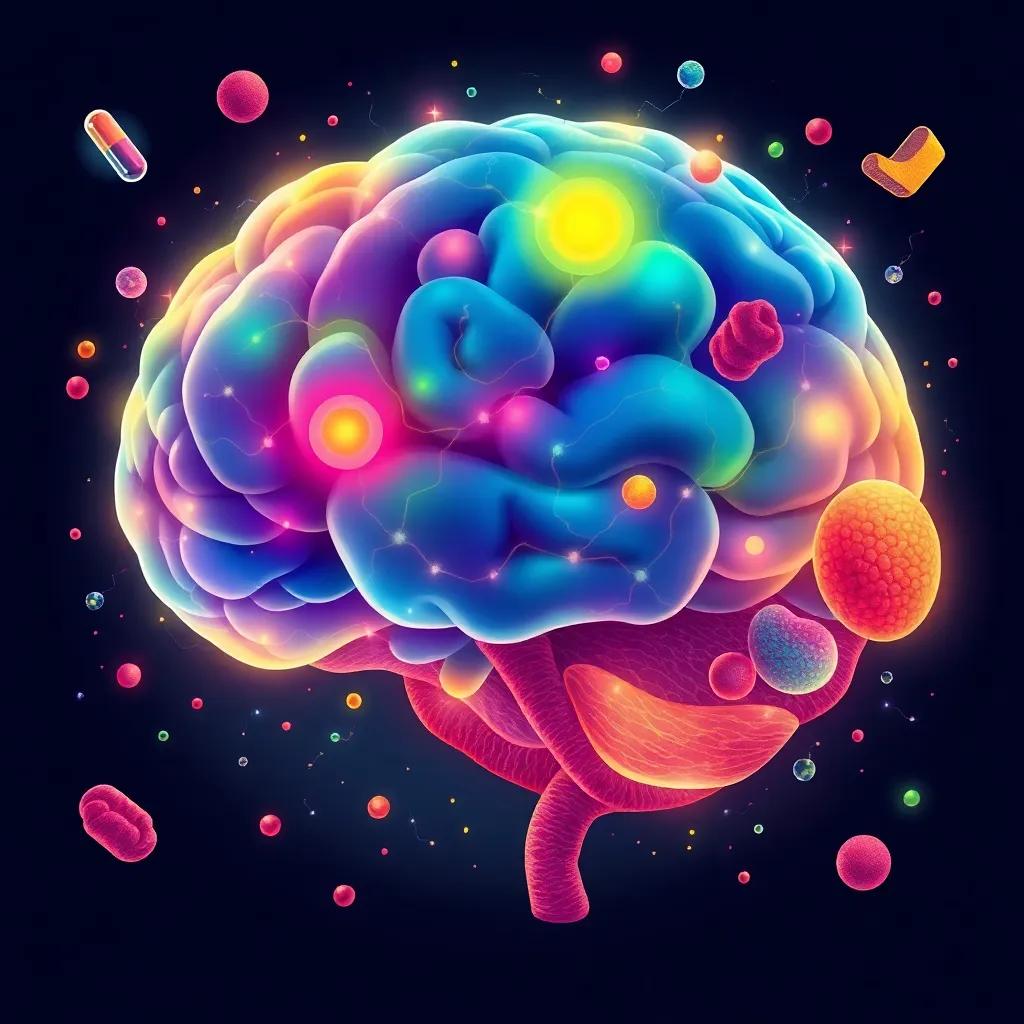Explore the gut-brain axis and its impact on mental health, with actionable tips for optimizing gut health through diet, probiotics, and lifestyle changes.
Discover how the gut-brain axis influences mental clarity and emotional balance, and learn practical strategies to optimize your microbiome for better mental health.
The Gut-Brain Axis: A Key to Mental Clarity and Emotional Balance
The gut-brain axis is a complex communication network that links the emotional and cognitive centers of the brain with peripheral intestinal functions. This bidirectional relationship means that the health of your gut can significantly impact your mental well-being. The gut is often referred to as the ‘second brain’ due to its extensive network of neurons and its ability to produce neurotransmitters like serotonin and dopamine,
explains Dr. Emeran Mayer, a leading researcher in the field of neurogastroenterology.
How the Microbiome Influences Mental Health
The gut microbiome, composed of trillions of microorganisms, plays a crucial role in regulating neurotransmitter production, inflammation, and stress responses. Studies have shown that an imbalance in gut bacteria, known as dysbiosis, can lead to mental health issues such as anxiety and depression. Research published in the journal ‘Nature Microbiology’ highlights that individuals with depression often have a less diverse gut microbiome,
notes Dr. John Cryan, a neuroscientist at University College Cork.
Optimizing Gut Health Through Diet
A diet rich in fiber, fermented foods, and prebiotics can promote a healthy microbiome. Foods like yogurt, kefir, sauerkraut, and kimchi are excellent sources of probiotics, which help replenish beneficial gut bacteria. Incorporating a variety of plant-based foods can increase microbial diversity, which is associated with better mental health outcomes,
says Dr. Tim Spector, author of ‘The Diet Myth.’
The Role of Probiotics and Prebiotics
Probiotics are live bacteria that provide health benefits when consumed, while prebiotics are non-digestible fibers that feed these beneficial bacteria. Combining probiotics and prebiotics can create a synergistic effect, enhancing gut health and, consequently, mental well-being,
explains Dr. Kirsten Tillisch, a gastroenterologist at UCLA.
Lifestyle Changes for a Healthy Microbiome
Stress management techniques such as mindfulness, meditation, and regular exercise can also positively impact gut health. Chronic stress can alter the composition of the gut microbiome, leading to increased inflammation and a higher risk of mental health disorders,
warns Dr. Emeran Mayer.
Scientific Evidence Supporting the Gut-Brain Connection
Numerous studies have demonstrated the link between gut health and mental well-being. For instance, a 2019 study published in ‘Psychosomatic Medicine’ found that participants who consumed a probiotic-rich diet experienced significant reductions in anxiety and depression symptoms. These findings underscore the importance of a holistic approach to mental health, one that includes optimizing gut health,
concludes Dr. John Cryan.
Taking a Holistic Approach to Mental Health
Improving mental clarity and emotional balance requires a comprehensive approach that includes dietary changes, stress management, and regular physical activity. By nurturing your gut microbiome, you can enhance your overall mental well-being and achieve a more balanced, healthier life.




